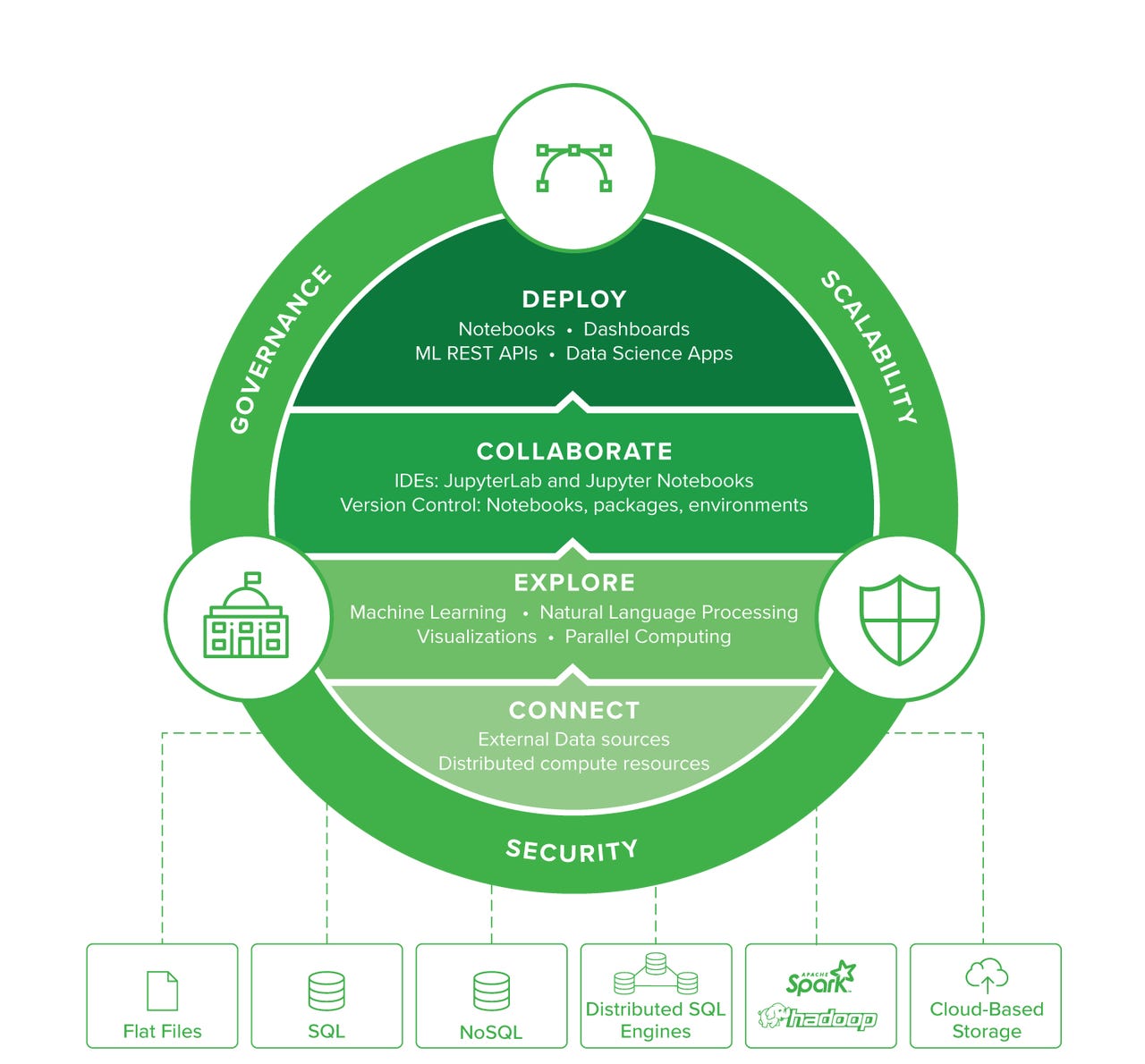AI to the people: Anaconda readies its Enterprise 5 Python distribution

Anaconda, Inc. (formerly Continuum Analytics) is releasing version 5 of the Enterprise SKU of its namesake Python distribution today. Are you thinking to yourself "A new release of a programming language? Big whoop?" If so, I understand, but you have it all wrong.
It's all about AI
While Python is in fact a general-purpose programming language, it became data science-friendly with the introduction of the NumPy library, in 2005. NumPy adds support for matrices and multidimensional arrays, as well as a host of functions that can process data stored within them. Fast forward to present day, and Python with NumPy has become a favorite tool of data scientists. Along with R, it's a key technology for Machine Learning and Artificial Intelligence.
NumPy was created by Travis Oliphant, who is also Anaconda's President and Chief Data Scientist, and a co-founder of the company. As Continuum Analytics, the company began life as a bootstrapped analytics consulting/services firm. Not surprisingly then, the Anaconda distribution of Python presents itself more as an Enterprise data science platform than a mere programming language distribution.

Anaconda Enterprise "marketecture" diagram
Integrate, collaborate
Anaconda Enterprise supports a great number of integrations that make it very interesting. Chief among these is its ability to run in a distributed fashion across the nodes in Hadoop and Spark clusters. Even when running on a single node, Anaconda Enterprise can connect to Spark clusters to run distributed computations in a remote fashion interactively.
Anaconda can also integrate with Jupyter notebooks and JupyterLab. Jupyter was once called IPython, so this shouldn't be a huge shocker, but the Anaconda team is a core contributor to the Jupyter project, so this integration is more than incidental.
Version 5 of the Anaconda Enterprise SKU supports REST API access, so that developers who are not data scientists can nonetheless build intelligent applications that integrate the predictive capabilities of machine learning models built in Python. Anaconda Enterprise 5 can also create and distribute executive dashboards and integrate with Microsoft Excel in a manner suitable for analysts. These integrations add important operational-ization capabilities that most Enterprises require.
The Microsoft connection
Excel is not the only Microsoft technology with which Anaconda is integrated. Python support in Azure Machine Learning, and the ability to author and run Python code in Visual Studio, are both powered by Anaconda. The upcoming 2017 release of SQL Server -- Microsoft's flagship relational database -- will support integration of Python code and models via the same mechanism which facilitates the integration of R code in SQL Server 2016 today. And the flavor of Python supported by SQL Server 2017 is -- you guessed it -- Anaconda.
These integrations work both ways, too: a build of Microsoft R Open is included within Anaconda. Anaconda also partners with Intel, nVidia, Cloudera, Hortonworks and IBM, along with other AI and Big Data industry players.
Other goodies, including a free one
Anaconda Enterprise includes the "Conda" package manager for Python. It also sports a true compiler for Python code (which is typically interpreted). The compiler targets both CPUs and GPUs, making for performance optimizations that are crucial in operational machine learning. Enterprise-grade security, including LDAP/Active Directory and Kerberos integration as well as native role-based access control; TLS/SSL encryption; and token-based access control to models and apps are all part of Anaconda Enterprise as well.
Not an Enterprise customer but want to get your hands on the bits? Anaconda also offers an open source Python distribution -- while it lacks support from Anaconda, and many of the Enterprise distro's features, it is nonetheless available as a free download for Windows, Mac and Linux.